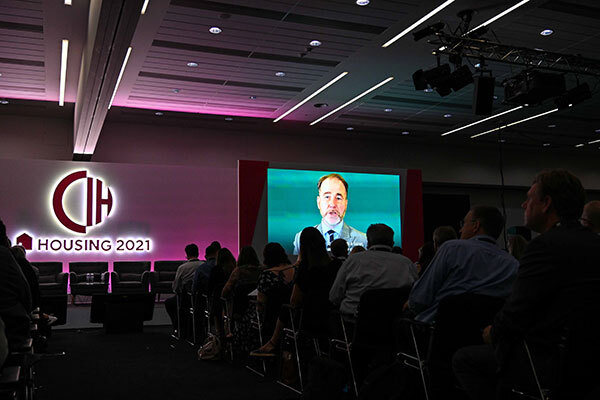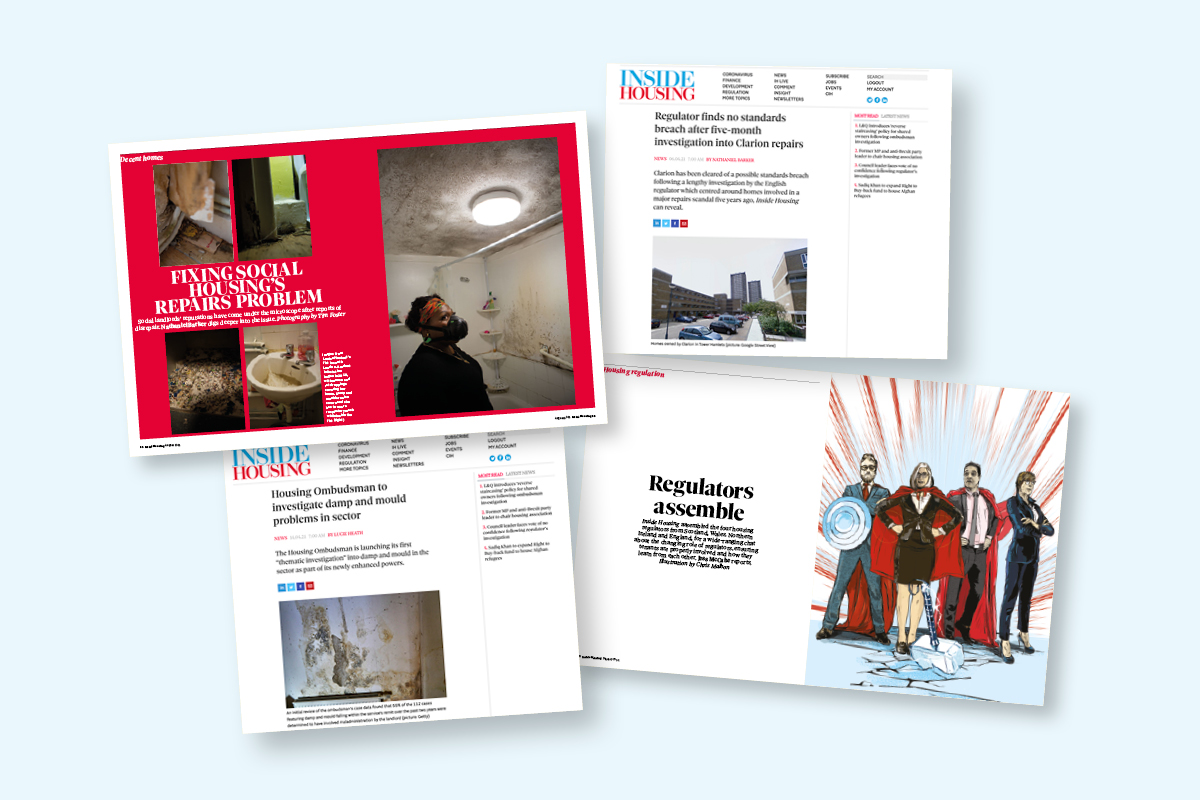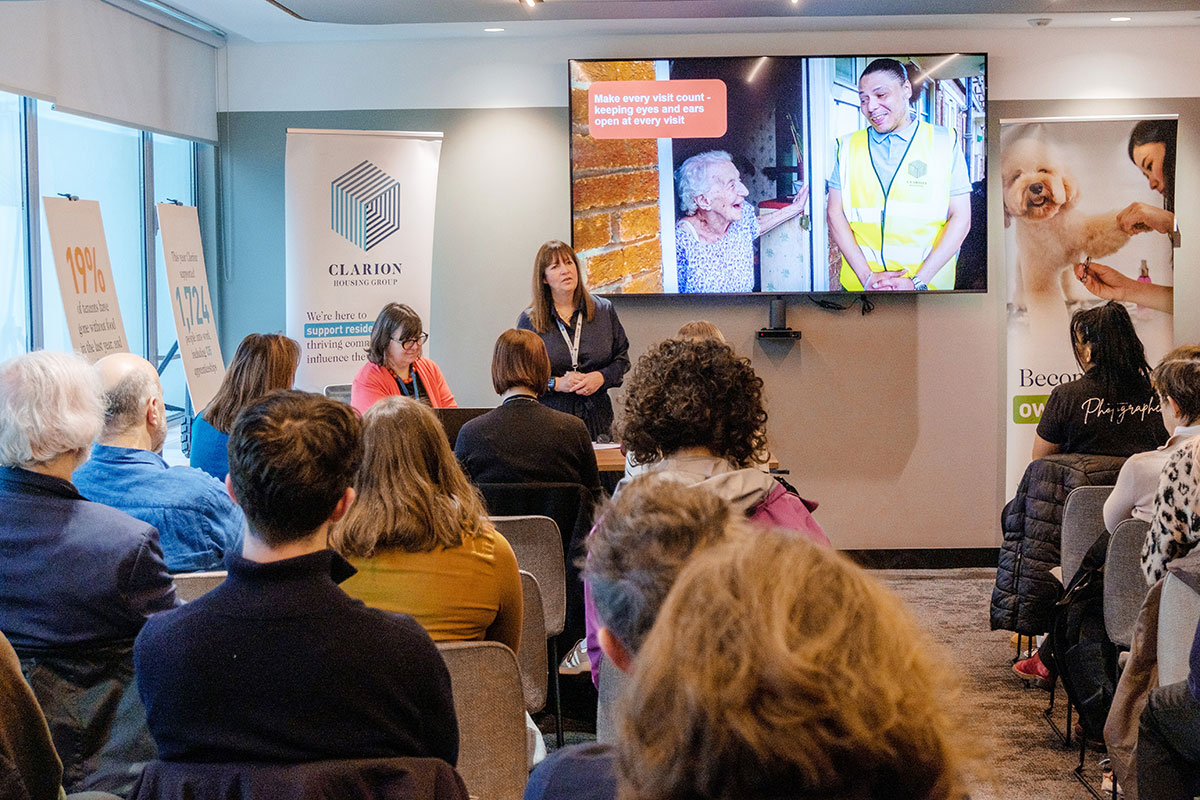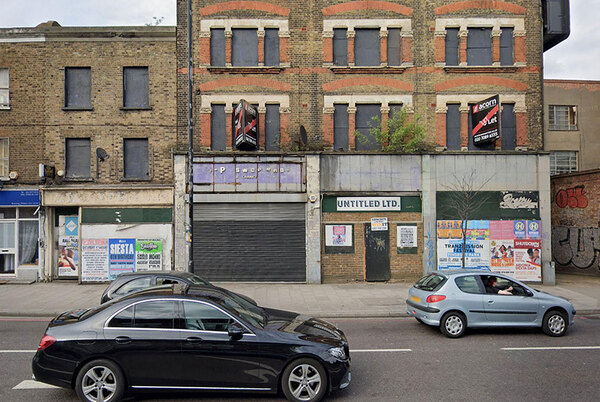Dispatches from Housing 2021: day one
A daily round-up of the most important headlines from day one of the Housing 2021 conference
It is finally upon us after two years and three months. The sector’s biggest event, Housing 2021, opened for its first day today. After a mad rush to the dry cleaners to freshen up their forgotten-about work clothes, the sector’s brightest minds descended on Manchester Central’s conference centre to attend social housing’s Glastonbury.
But while there was no guest appearance from Stormzy, the Killers, or the housing minister for that matter, there was a buzz in the conference centre as colleagues – who in some cases hadn’t seen each other in more than 18 months – reacquainted themselves with one another. And the conference didn’t disappoint in terms of speakers. The packed agenda was filled with enlightening conversation about the state of a sector that has changed drastically since the beginning of the pandemic.
Pincher on pre-record
On the keynote stage – Housing 2021’s equivalent to Glastonbury’s Pyramid Stage – there was an audible groan when it was revealed that the housing minister wouldn’t be there in person, and more importantly couldn’t field questions. Instead, the auditorium had to sit through a 15-minute pre-recorded message in which he recounted some of the government’s housing achievements. In truth, there were no significant announcements.
One delegate, who took the mic following the video, voiced what some delegates may have been thinking, when they described the message as “superficial and disingenuous and didn’t really say much”. And what the video missed out prompted more discussion than what it included.
Some of those taking part in the ‘right of reply’ session straight afterwards were miffed at the lack of mention of the building safety crisis and the conditions of tenants. Kate Henderson, chief executive of the National Housing Federation, said the lack of mention of building safety was the biggest omission, adding: “It’s the biggest challenge we face. It’s a non-negotiable issue for us. The safety of our residents is our number one priority.”
But it wasn’t totally lacking substance. Mr Pincher did cover the government’s commitment to the £3.8bn Social Housing Decarbonisation Fund. This was welcomed by the sector and will be significant to any plans it has to reach net zero carbon.
The winds of change in the priorities of social landlords
In the morning, the Savills affordable housing team presented their fifth annual Housing Sector Survey, run in partnership with our sister magazine Social Housing, revealing the extent to which investing in existing stock has become a priority in the sector.
This year’s survey found an 85% increase in stock investment as a top priority among the 138 housing provider respondents.
However, Lucian Cook, head of UK residential research at Savills, attempted to assuage fears that investment in existing stock will have a big impact on development programmes by pointing out that “only” 30% of respondents said the need to invest in existing stock will affect their development aspirations.
“And perhaps more encouraging than that, two-thirds of those said it would affect their development aspirations by less than 25% – so there is still a strong desire to add to the existing affordable housing stock through developments,” he said.
EWS1 alterations may change nothing at all for L&Q
It has been a big period in terms of changes to government fire safety guidance, after it revealed in July that buildings under 18 metres tall should no longer require an EWS1 form. But will this have any impact on the huge fire safety cost estimates expected by the sector’s biggest players?
Well, according to L&Q, the landlord with arguably the biggest expected bill, it won’t. Fiona Fletcher-Smith, the boss of the huge London landlord, which is expecting to spend just under £450m on fire safety works, said that nothing the government would do with regards to guidance would change its estimates as it was adopting a risk-based approach.
In a final stinging assessment of the government’s response to the building safety crisis, it would appear Ms Fletcher-Smith isn’t holding her breath for any significant change any time soon. She said that she was waiting to see what the government would do, but added that she had been waiting quite a long time.
The lease-based providers say the sector is changing
An early session at the Fringe stage saw real estate investment trust Civitas and the CEOs of two lease-based specialist supported housing providers ask: “How do we make sure the most vulnerable people in society have a proper home for life?”
Steve Fensom, chief executive of Westmoreland Supported Housing, told delegates that he and other chief executives of non-compliant lease-based associations were calling for “increased scrutiny” and “increased transparency” within the sub-sector.
The sector has been under some scrutiny already. A number of lease-based providers of specialised supported housing have been deemed non-compliant by the Regulator of Social Housing.
Mr Fensom indicated that things could be changing, saying that the SSH sector had reached an “evolution in the marketplace” after the “gold rush” of five years ago. He added that the investors who remain in the sector “want to have the engagement with housing providers”.
However, not everyone agreed. One audience member questioned whether things have really changed from the “gold rush” period, asking: “If you are backed by private capital investors who want their returns at a certain rate year in year out, can your model really change?”
Jack Simpson, news editor
The main stories from day one of Housing 2021
- Housing minister slammed after swerving building safety in speech
- L&Q fire safety cost estimates will not change despite new government guidance, says chief executive
- In full: Gavin Smart’s opening address to Housing 2021
- More than one in six social homes ‘uneconomical’ to upgrade to net zero, research finds
- Chief executive of non-compliant supported housing provider calls for ‘increased scrutiny’ of sector
Housing 2021 runs from Tuesday 7 September to Thursday 9 September. For more information about the conference, click here.
Sign up for our Week in Housing newsletter
Already have an account? Click here to manage your newsletters














